Turkish authorities arrest 46 people and suspected Istiklal Street bombing suspect
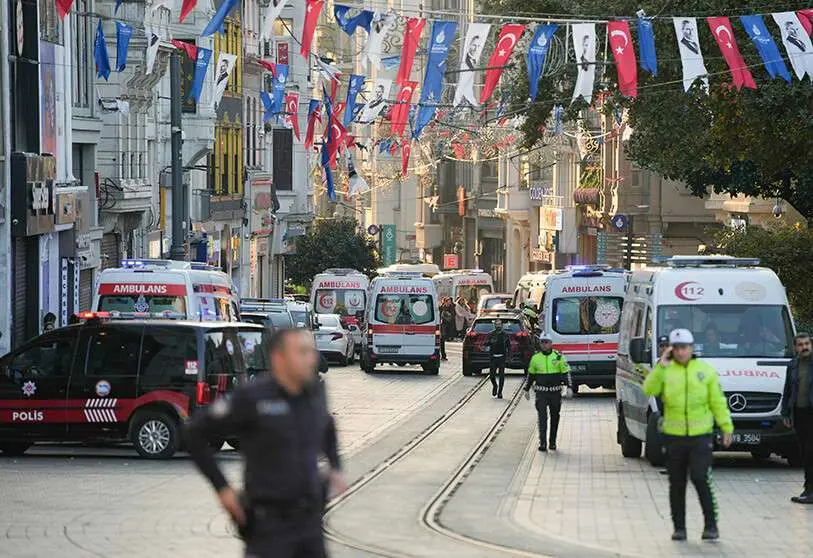
Less than 24 hours after the bombing on the central Istiklal Street in the European part of Istanbul, Turkish authorities announced the arrests of at least 47 people. Among them is the main suspect in planting the explosive device that killed 6 people and injured 81.
The Istanbul Provincial Police announced through its media that a Syrian national residing in Turkey was arrested at her home early Monday morning. The authorities revealed her identity and image through several photographs. There is also a video on social media showing the moments of her arrest. Along with her nationality, the Turkish authorities gave the name Ahlam Albashir.
Teröristin yakalanma anı… #taksim #patlama #istanbul pic.twitter.com/Zcv5o8uT5E
— Umut Erol (@umuteroltv) November 14, 2022
In the video, several members of the Turkish police can be seen entering a flat and arresting a woman dressed in a purple sweatshirt and black tights. The police then proceed to search the house and transfer the detainee.
Turkish Interior Minister Süleyman Soylu appeared before the media at around 8 a.m. local time to give details of the investigation. Soylu confirmed the number of detainees and linked them all to the Kurdish Workers' Party (PKK) and the People's Protection Units (YPG), the Kurdish armed group with a presence in northern Syria. For their part, neither of the two organisations fighting for the independence of the Kurdish people have claimed responsibility for the attack. The detainee, who in the images published by the Turkish police shows signs of violence, is said to have confessed after interrogation.
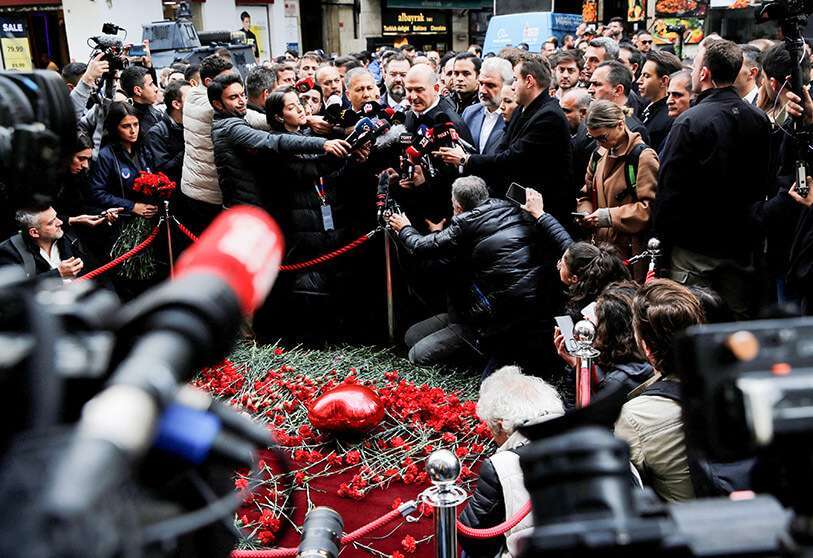
According to Soylu, the alleged bomber received orders from Kobane, a town on the border between Turkey and Syria. Ahlam Albashir allegedly entered Turkey irregularly, according to the authorities' accusation, via a route coming from the city of Afrin in the Aleppo region.
"The terrorists were caught in a successful operation. If they had not been caught they would have fled to Greece today," Soylu added in front of a wreath laid at the site of the attack. Seven Turkish state prosecutors have been in charge of the investigation since yesterday.
Turkish President Recep Tayyip Erdogan, who was scheduled to travel to Indonesia, did not alter his schedule and condemned the attack on the island of Bali. There, he met with President Widodo in a meeting prior to the G20 summit.
Istiklal Street reopened calmly to the public on Monday morning, according to local Turkish media reports. Municipal clean-up crews cleared debris during the early hours of the morning and the heavy police presence was reduced throughout the morning. Turkish citizens come to the site of the attack to leave flowers and candles. Among them the mayor of Istanbul, Haydar Ali Yıldız, a member of Erdogan's party.
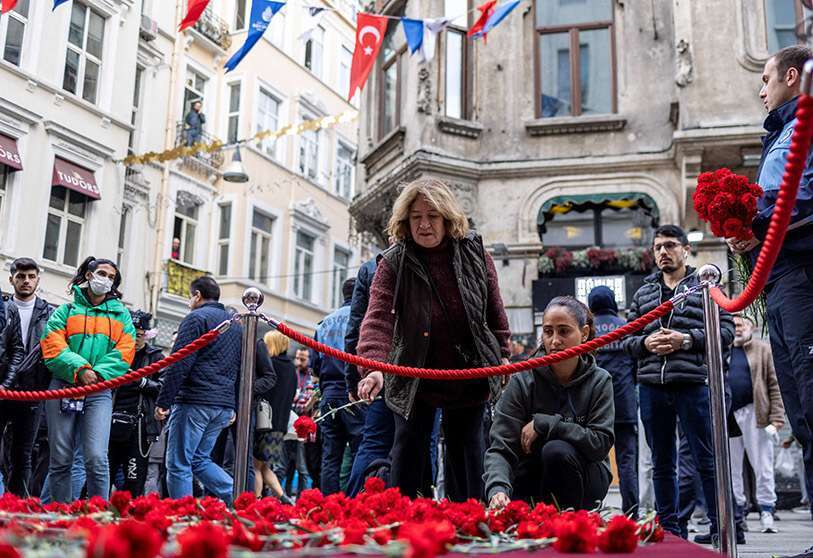
Tension with the United States
The international community has turned to Turkey and has shown its rejection and condemnation of the attack. France, Greece and Ukraine sent messages of solidarity. In a message from President Vladimir Putin, Russia said it was committed to improving its anti-terrorism cooperation with Turkey in the future.
The United States also offered its condolences to the Turkish state. "The United States strongly condemns the act of violence that took place today in Istanbul, Turkey. Our thoughts are with those who were injured and our deepest condolences to those who lost loved ones. We stand shoulder to shoulder with our NATO ally Turkey in the fight against terrorism," reads the statement signed by Secretary of State Karine Jean-Pierre.
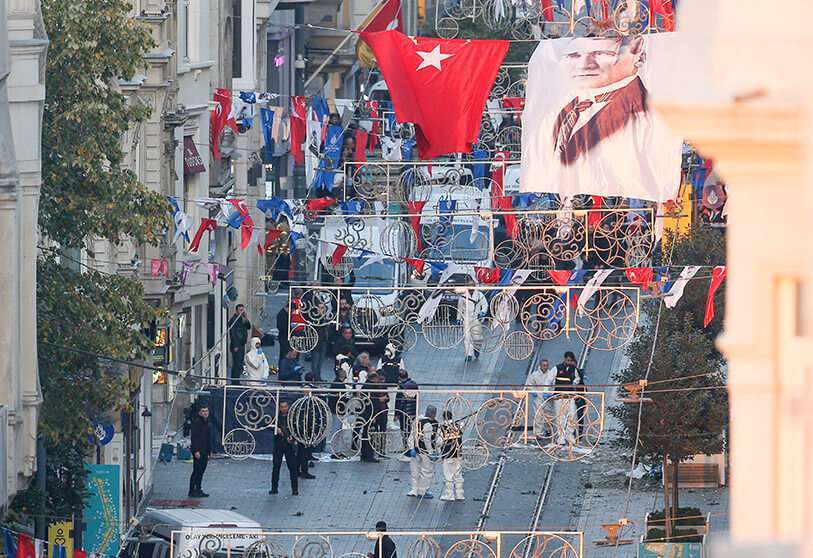
Interior Minister Suleyman Soylu rejected these condolences during his speech to the media because of the connections between Washington and Kurdish groups in Syria, which Ankara denounces. Tensions of this kind, which have the Kurds in the eye of the storm, are at the heart of Turkey's relations with Finland and Sweden within NATO. A large number of Kurdish or PKK activists and politicians, for whom Ankara is seeking extradition on charges of complicity in terrorist acts, have found refuge in these two Nordic countries.
Turkey said in the summer that its cooperation in integrating the Nordic countries into the Atlantic alliance would be conditional on Sweden and Finland's willingness to negotiate with these Turkish demands on the table.
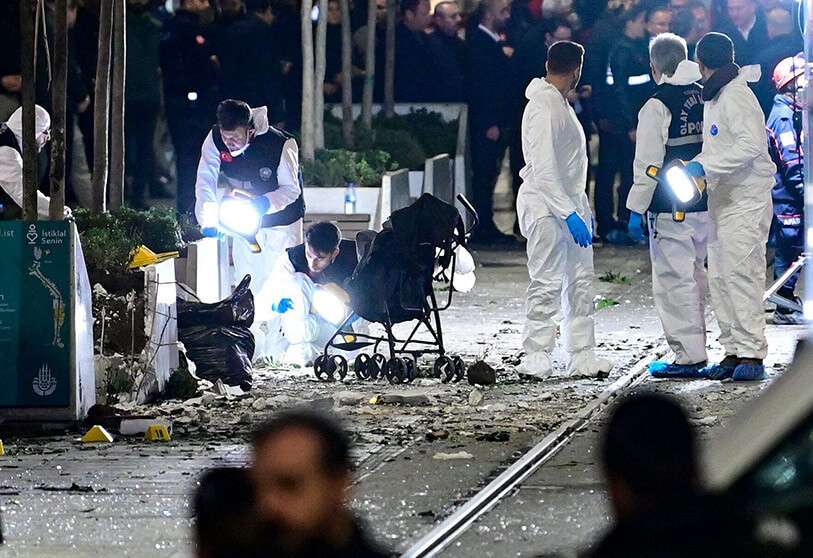
Response in Syria
Throughout the morning, the Turkish government reported that it struck several Turkish YPG militia positions in northern Syria. According to the Turkish Ministry of Defence, at least four members of these armed groups were killed in a lightning operation.
The Turkish government presented this strike as a direct consequence of the attack, presenting it as a response to the Istiklal Street attack: "The hero Mehmetçik (Turkish term used to refer to the soldiers) continues to give the necessary punishment to the cowards who do not dare to confront him and who are so treacherous as to attack innocent people", according to a translation by the EFE news agency for a communication from the Turkish Ministry of Defence.
Throughout this year, Turkey has launched several offensives in northern Syria, most recently with the intention of creating a security cordon several kilometres south of its border with Syria and approaching Aleppo.








